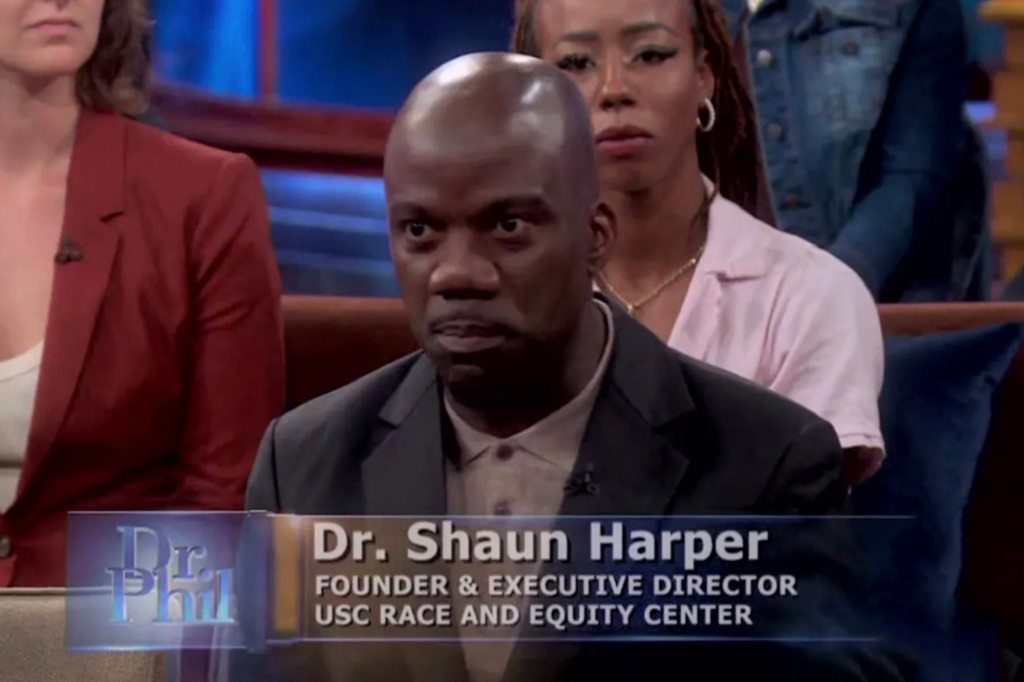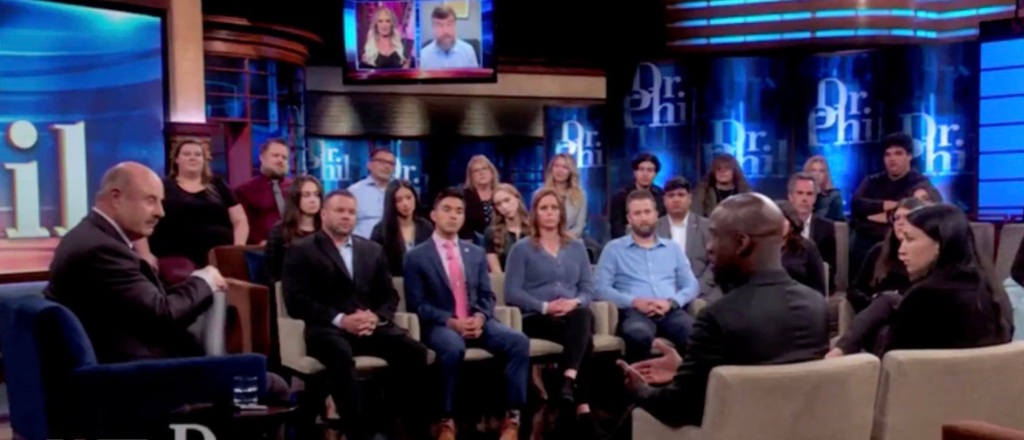‘Dr. Phil’ guests war over ‘cancel culture’: ‘You can’t say that’
“Dr. Phil” guests butted heads over “cancel culture” on colleges Monday, with one expert analogizing the so-called phenomenon to “McCarthyism,” while the other suggested it was a “conservative” myth.
The war of words transpired on Monday’s show during a segment on cancel culture called “You Can’t Say That,” Fox News reported.
“People are looking over their shoulders and watching their words out of fear of someone pointing a finger publicly and saying ‘You can’t say that!’” declared the 72-year-old television host, whose real name is Philip McGraw.
The Oklahoman entertainer further compared cancel culture to a “mob mentality” that results in people getting “banished from society forever.”
McGraw then brought on two experts to debate the topic: the president of the Foundation for Individual Rights and Expression Greg Lukianoff and Shaun Harper, Executive director of the USC Race and Equity Center.
“I have never seen anything like it in my career than I’ve seen over the last two years,” exclaimed Lukianoff, who had Zoomed into the show.
He claims this unfortunate trend began in, 2015, when he “started seeing tenured professors getting fired for what they said.”
The free speech crusader didn’t cite specific cancellation examples. However recent high-profile alleged incidents have included Peter Boghossian a former philosophy professor at Portland State University in Oregon who resigned in 2021 after being allegedly targeted for criticizing the school’s so-called woke orthodoxy.
While Lukianoff admitted that professorial purges come from the right as well — notably English professor Sue Bergin, who was allegedly sacked from Brigham Young University for her pro-LGBTQ views — he found the overall number astonishing.
“When you start getting up to 770 attempts to get professors fired, about 2/3 of those attempts result in some kind of punishment, hundreds of professors either stepped down, fired or suspended, we can’t find a historical parallel to this,” he lamented.

Lukianoff went so far as to contend that current “cancel culture” campaigns were even more oppressive than the ideological witch hunts of the 1950s.
“Even when we look at the old — the Red Scare, McCarthyism, the best we can find is about 75 to 130 professors being fired or punished during that time,” he said. “So I am at a point where I’m fairly frustrated with people who are saying that cancel culture isn’t even happening.”
However, Lukianoff’s claims were challenged by Harper, who suggested that the concerns are overblown.
He asserted that the “overwhelming majority of college students of color,” including black, hispanic, Asian-American, and Native-American “report that their college and university campuses, in particular the classrooms, are extremely conservative.”

“So, this whole notion of the ‘liberal university’ – it depends on who you ask,” he said. “It depends on what your experiential reality is with that curriculum and in those classrooms.”
Harper summed up the debate like this: “In our surveys at the USC Race and Equity Center, our data make painstakingly, irrefutably clear that not everybody experiences a university as this liberal, gone-too-far, ‘let’s cancel all of the conservatives’ kind of playground.”
The verbal sparring session represented a microcosm of the ongoing debate regarding cancel culture in society. Many conservative thinkers have argued that that colleges, Hollywood and other alleged former bastions of free speech have transformed into “woke” indoctrination centers that exile anyone who thinks differently.
In a 2018 column, Post film critic Johnny Oleksinski asserted that “in this oversensitive era, TV shows, Oscar-worthy movies and pop music are all under pressure to be as nice as Betty Crocker.”
“For millennia the best art has offended, tantalized, frightened, riled up and, of course, been life-affirming,” he wrote. “But today the American public, looking more than ever like Soviet Russia, has just one rule for entertainers: Don’t rock the boat.”
On the opposite end of the spectrum, defenders claim that “cancel culture” is a conservative myth used to smear people calling out predators and bigots. They cite the continued success of alleged anti-semite Mel Gibson and “transphobic” comedian Dave Chappelle as proof that “cancel culture” is not real.
Read the full article Here


